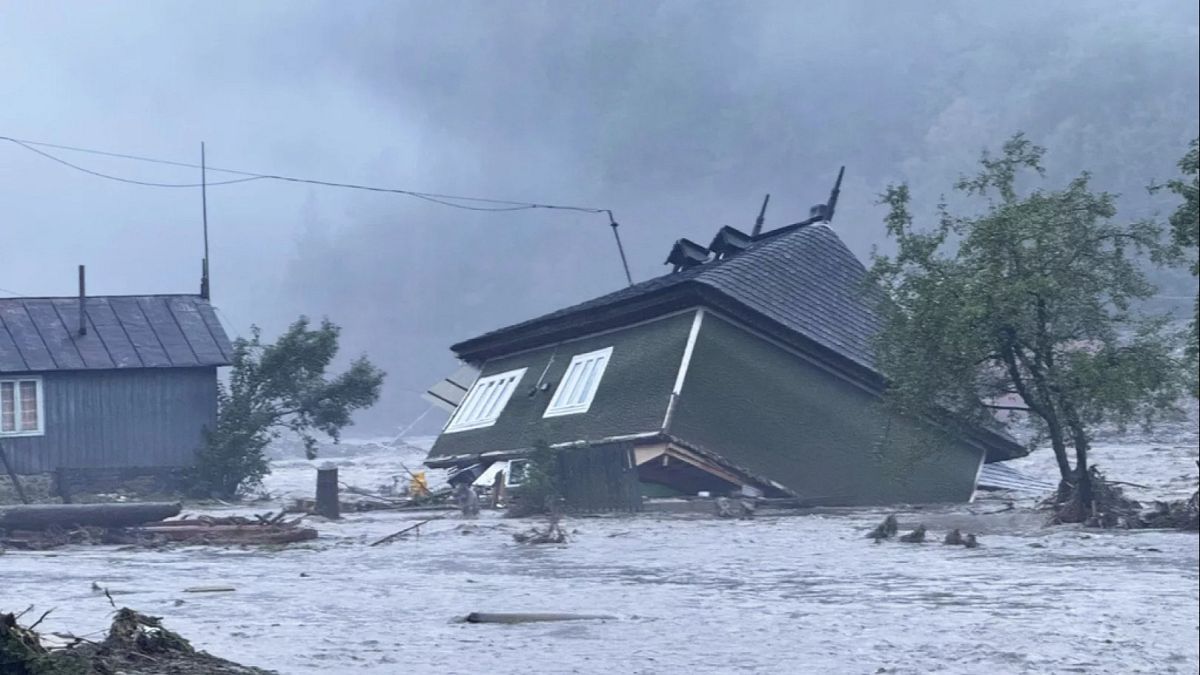

In recent days, our planet has showcased the full spectrum of its natural power, from severe heatwaves to rare snowfall, and from wildfires to volcanic eruptions. This confluence of events has reminded us of nature’s profound beauty and unpredictable strength.
In northeastern Romania, the aftermath of torrential rainstorms has been deeply felt, as flash floods have claimed at least three lives. In response, the Romanian government has pledged to utilize European Union funds to support affected areas, demonstrating a commitment to rebuilding and resilience. The plan is rooted in a determination to rejuvenate communities and safeguard livelihoods against future natural disasters.
On the Kamchatka Peninsula in Russia, the ancient Krasheninnikov volcano has stirred to life for the first time in over 600 years following a significant 8.8 magnitude earthquake. Its gentle awakening stands as a testament to the enduring patience and evolution of our planet’s landscapes. Despite this dramatic turn of events, there have been no immediate reports of damage or injuries, and scientists continue to observe its activity with cautious optimism.
Meanwhile, across the Southern Hemisphere, Australia has experienced an unusual climatic event of its own. Rare snowfall blanketed parts of New South Wales, leaving a white sheen reminiscent of a peaceful dreamscape. The heaviest snow since the mid-1980s has captivated residents and visitors alike, providing a striking and seasonal contrast to the normally mild winter conditions typical of the region.
However, as some areas rejoice in a wintry wonderland, others contend with fiery challenges. In northwest Spain’s Ponteceso region, residents and firefighters have battled fiercely against wildfires that have ravaged 500 hectares of forest. Their collective bravery reflects a spirit of unity and determination in the face of adversity, as they work tirelessly to protect their homes and natural ecosystems.
In Canada, wildfires have continued to blaze across the landscape, resulting in widespread air quality alerts that have extended into the United States. The uncompromising flames have darkened skies in cities such as Detroit, Montreal, and Toronto, offering a poignant reminder of the intricate interconnections between nature and human life. Despite challenges, communities remain steadfast, relying on technology and solidarity to address the air quality concerns.
Similarly, in central California, the Gifford Fire has prompted evacuation orders as it greedily consumes more than 65,000 acres of wilderness. With only 3% of the blaze currently contained, the specter of fire has become a formidable adversary. Nonetheless, the dedication and courage of those on the front lines reflect humanity’s resolute commitment to safeguarding both life and land.
Elsewhere, a different form of intensity has persisted, as both Japan and South Korea endure record-breaking heat. Kyoto reached an unprecedented 40°C, a new high for the city, while Seoul has experienced nights that defied the typical coolness of summer. The relentless warmth is less a burden and more a sign of the evolving climate patterns that shape our world, beckoning a need for mindful reflection and action.
Through these diverse events, the inherent complexities of our planet’s climate become increasingly visible. Each moment of challenge is met with resilience, resolution, and a renewed commitment to understanding the delicate balance between humanity and nature. As we navigate this ever-shifting terrain, a peaceful and informed perspective helps guide us towards adapting and embracing the beauty of our shared global community.
Source: {link}
